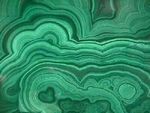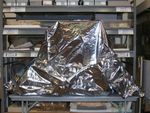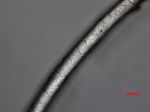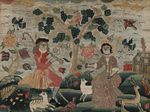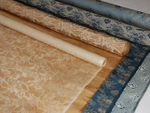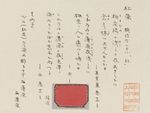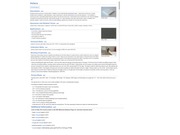Difference between revisions of "Main Page"
Rcouseillant (talk | contribs) |
|||
(11 intermediate revisions by 3 users not shown) | |||
| Line 1: | Line 1: | ||
__NOTITLE__ | __NOTITLE__ | ||
| − | =Conservation & Art Materials Encyclopedia Online= | + | ='''Conservation & Art Materials Encyclopedia Online'''= |
The '''Conservation and Art Materials Encyclopedia Online (CAMEO)''' is a database that compiles, defines, and disseminates technical information on the distinct collection of terms, materials, and techniques used in the fields of art conservation and historic preservation. First developed as a materials database in 1997 at the Museum of Fine Arts, Boston it has expanded with the cooperation of multiple institutions to include several reference collections. Learn more [[about CAMEO|ABOUT CAMEO]]. | The '''Conservation and Art Materials Encyclopedia Online (CAMEO)''' is a database that compiles, defines, and disseminates technical information on the distinct collection of terms, materials, and techniques used in the fields of art conservation and historic preservation. First developed as a materials database in 1997 at the Museum of Fine Arts, Boston it has expanded with the cooperation of multiple institutions to include several reference collections. Learn more [[about CAMEO|ABOUT CAMEO]]. | ||
| Line 18: | Line 18: | ||
<table> | <table> | ||
<tr> | <tr> | ||
| − | <td width=45% valign="top">[[File:MarvelSeallogo.jpg|150px|left| | + | <td width=45% valign="top">[[File:MarvelSeallogo.jpg|150px|left|]] |
| − | ;[[:Category:MWG|Materials | + | ;[[:Category:MWG|Fact Sheets on Exhibit & Storage Materials]]: Information on materials used for the exhibition, storage and transport of cultural heritage objects created by the [http://www.conservation-wiki.com/wiki/Materials_Working_Group Materials Working Group] under the [https://www.culturalheritage.org/ American Institute for Conservation.]<br>[[:Category:MWG|View Database]]</td> |
<td width=45% valign="top">[[File:7fcf67d226714e0beab486b64b2e6a4c.jpg|150px|left|link=Fiber Reference Image Library]] | <td width=45% valign="top">[[File:7fcf67d226714e0beab486b64b2e6a4c.jpg|150px|left|link=Fiber Reference Image Library]] | ||
| − | ;[[Fiber Reference Image Library|Fiber Reference Image Library]]: A database for the identification of fibers using multiple microscopic techniques | + | ;[[Fiber Reference Image Library|Fiber Reference Image Library]]: A database for the identification of fibers using multiple microscopic techniques. The reference collection of plants and fibers characterized in this database reside at the Library of Congress Preservation Science Center for the Library's Analytical Scientific Samples ([https://www.loc.gov/preservation/scientists/projects/class.html CLASS]). [[Fiber Reference Image Library|View Library]]</td> |
</tr> | </tr> | ||
<tr> | <tr> | ||
| Line 32: | Line 32: | ||
<tr> | <tr> | ||
<td width=45% valign="top">[[File:Uemura top.jpg|150px|left|link=:Category:Uemura dye archive]] | <td width=45% valign="top">[[File:Uemura top.jpg|150px|left|link=:Category:Uemura dye archive]] | ||
| − | ;[[:Category:Uemura dye archive|Uemura Dye Archive]]: A collection of 744 dyed fabrics prepared in the early 20th century by Uemura Rokuro, a scholar of traditional dyeing techniques in Japan. | + | ;[[:Category:Uemura dye archive|Uemura Dye Archive]]: A collection of 744 dyed fabrics prepared in the early 20th century by Uemura Rokuro, a scholar of traditional dyeing techniques in Japan. This collection is housed in the MFA Scientific Research Department.<br>[[:Category:Uemura dye archive|View Archive]]</td> |
<td width=45% valign="top">[[File:Straus wall of pigments.jpg|150px|left|link=Forbes Pigment Database]] | <td width=45% valign="top">[[File:Straus wall of pigments.jpg|150px|left|link=Forbes Pigment Database]] | ||
| − | ;[[Forbes Pigment Database|Forbes Pigment Database]]: An inventory and analysis of Forbes pigment samples currently dispersed | + | ;[[Forbes Pigment Database|Forbes Pigment Database]]: An inventory and analysis of Forbes pigment samples currently dispersed in various museums around the world. The core collection, the [https://www.harvardartmuseums.org/article/pigment-collection-colors-all-aspects-of-the-museums Forbes Pigment Collection] is housed at the [https://www.harvardartmuseums.org/ Harvard Art Museums.]<br>[[Forbes Pigment Database|View Database]]</td> |
</tr> | </tr> | ||
</table> | </table> | ||
Latest revision as of 09:20, 15 May 2023
Conservation & Art Materials Encyclopedia Online
The Conservation and Art Materials Encyclopedia Online (CAMEO) is a database that compiles, defines, and disseminates technical information on the distinct collection of terms, materials, and techniques used in the fields of art conservation and historic preservation. First developed as a materials database in 1997 at the Museum of Fine Arts, Boston it has expanded with the cooperation of multiple institutions to include several reference collections. Learn more ABOUT CAMEO.
To use CAMEO, select any of the databases on the left or below, or simply search by entering text into the search box at the top right.
|
Reference Collections
|
|
|
|
|
|
NEWS & UPDATES
July, 2020
The Freer Gallery of Art and Arthur M. Sackler Gallery, the Smithsonian’s National Museum of Asian Art, in cooperation with the MFA has created the Asian Textile Database, an open-access resource to facilitate the international study and appreciation of Asian textiles. This project began in 2005 as a digital inventory of textiles used to mount East Asian scrolls. While working with textile scholars, conservators realized the impact this growing resource of technical data could have on research in the field. Because historic Asian textiles are inherently fragile and scattered in collections across the globe, access is often restricted, making comparative analysis difficult. Research is siloed because there is no repository of data that is generally available and consistently updated. The Asian Textile Database is a Wikimedia database that provides a centralized data source and invites researchers, conservators, and conservation scientists to share information about collections and cooperate in building this international research tool.
Explore the Asian Textile Database
July, 2020
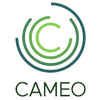
The CAMEO homepage now has a new logo and look!
We would like to thank Scott Na'auao of Welcome Stranger for his generosity in designing the new logo. Thank you!
June, 2020
The Materials Selection and Specification Working Group (MWG) at the American Institute for Conservation (AIC) is leading an effort to provide a resource bank of information that will help develop best practices in selection of materials used in the preservation, transport, and display of cultural heritage. CAMEO has been designated as the platform for the consolidated information on materials with new sets of information added under the headers: Applications, Personal Risks, Collection Risks, Environmental Risks, Working Properties, and Forms/Sizes. The ‘Additional Information’ field will contain links to the Oddy Test results residing in the AIC Wiki. The ‘Environmental Risks’ section will be populated with information developed as part of the recently funded NEH grant for Life Cycle Assessment of materials and treatments used in cultural conservation. CAMEO will also provide links to the Life Cycle Assessment tool that will enable the comparison of carbon footprints for over 3000 materials.
View: Materials Working Group Database
